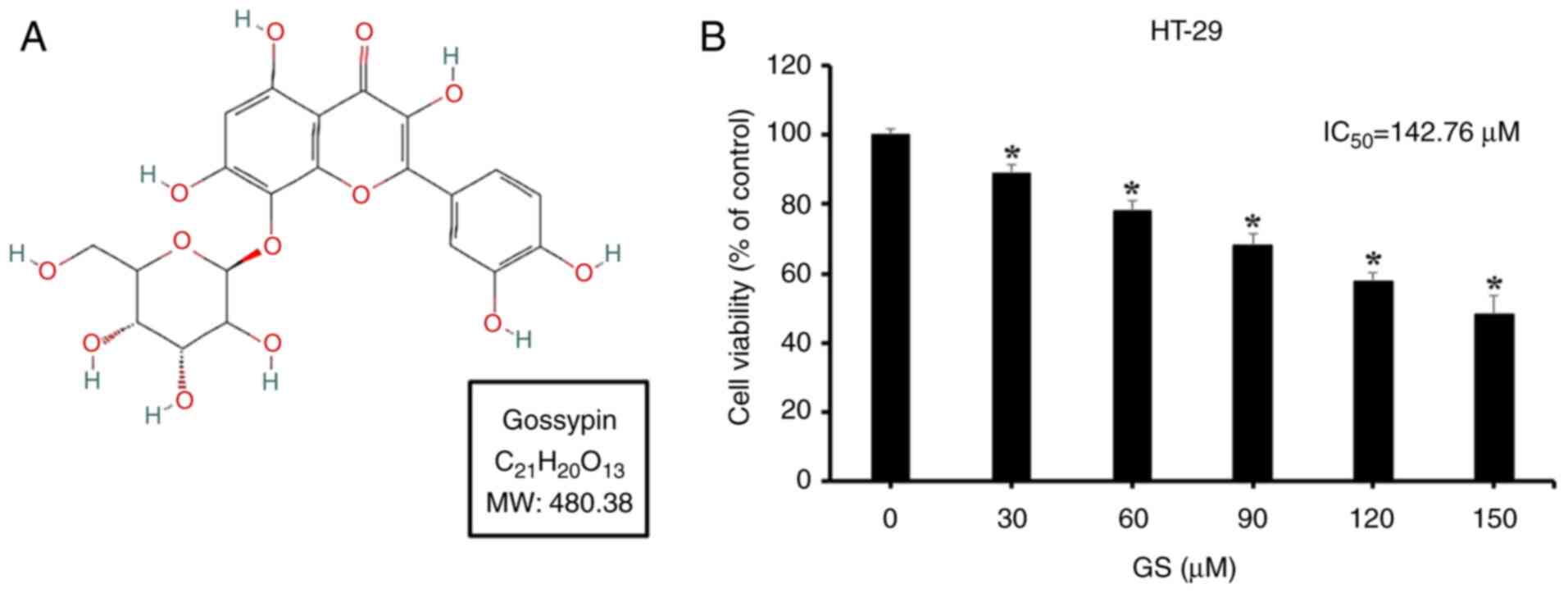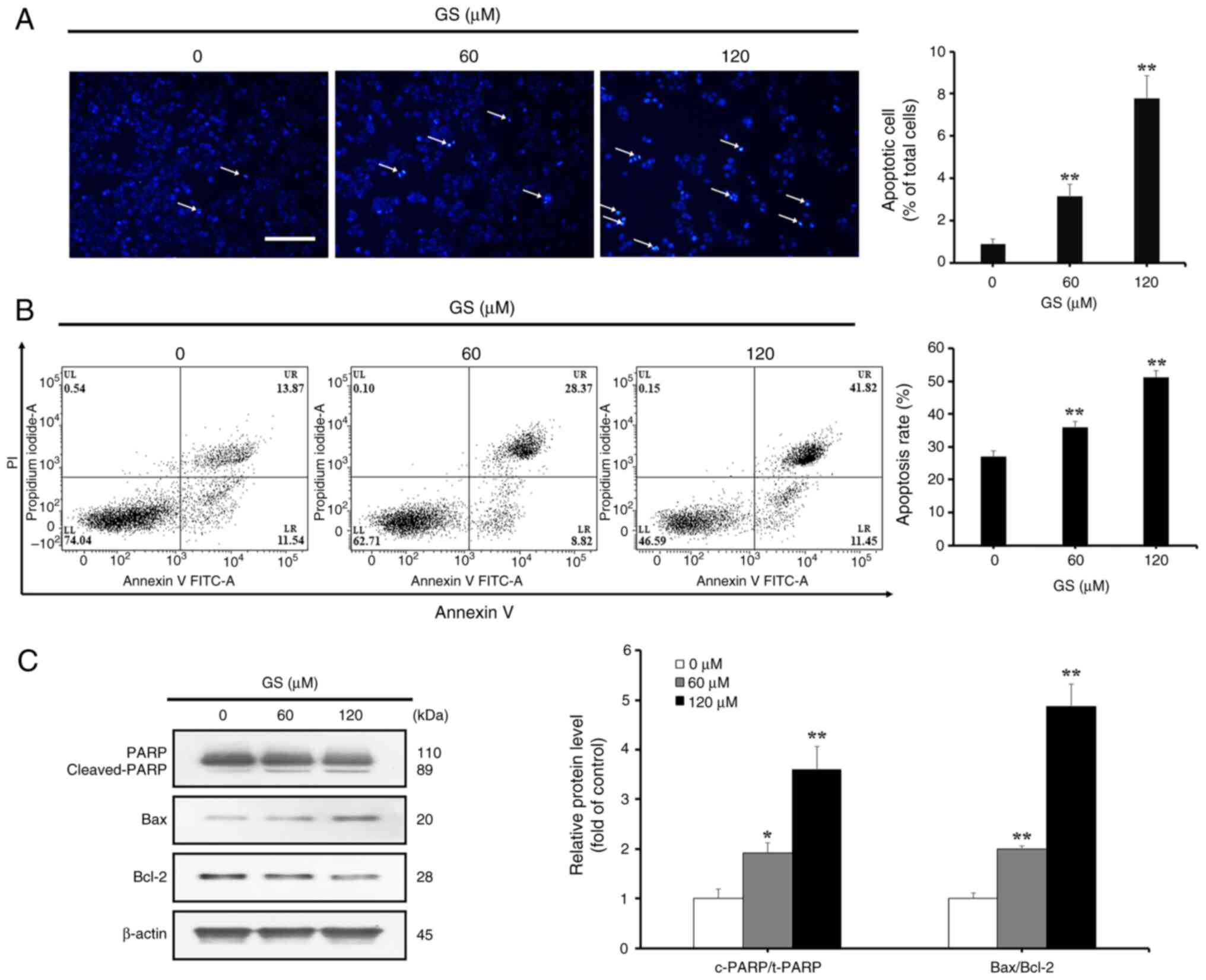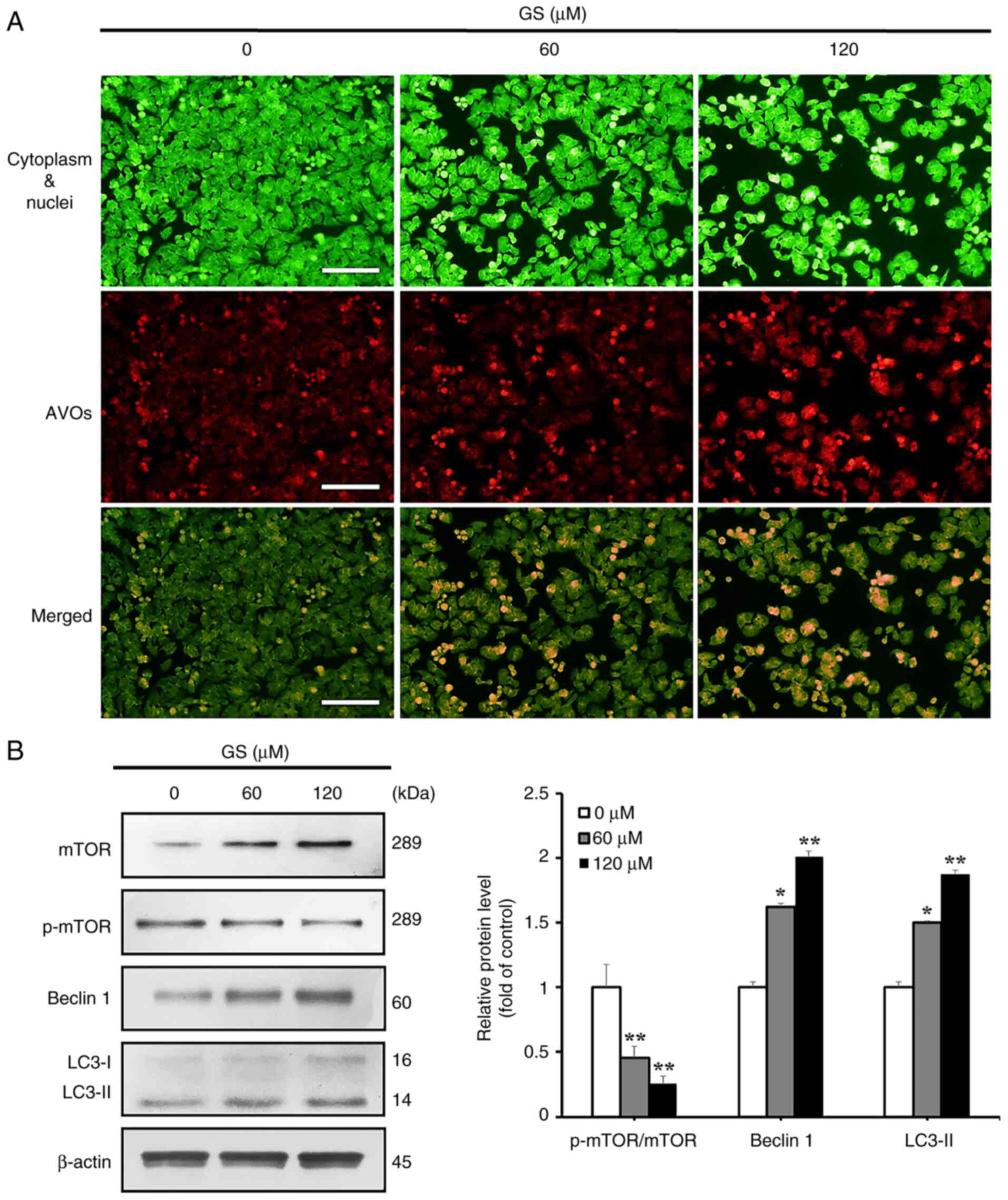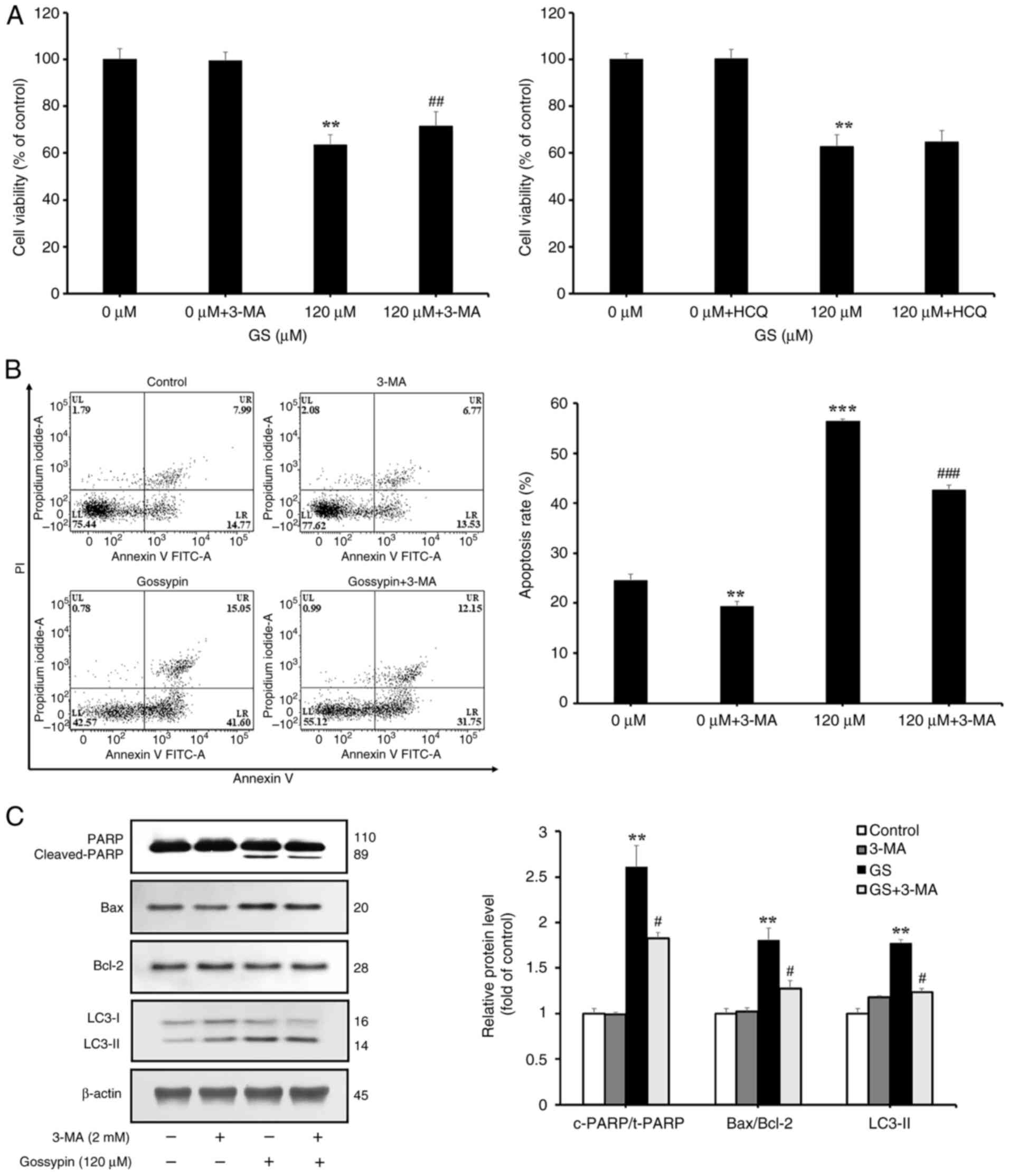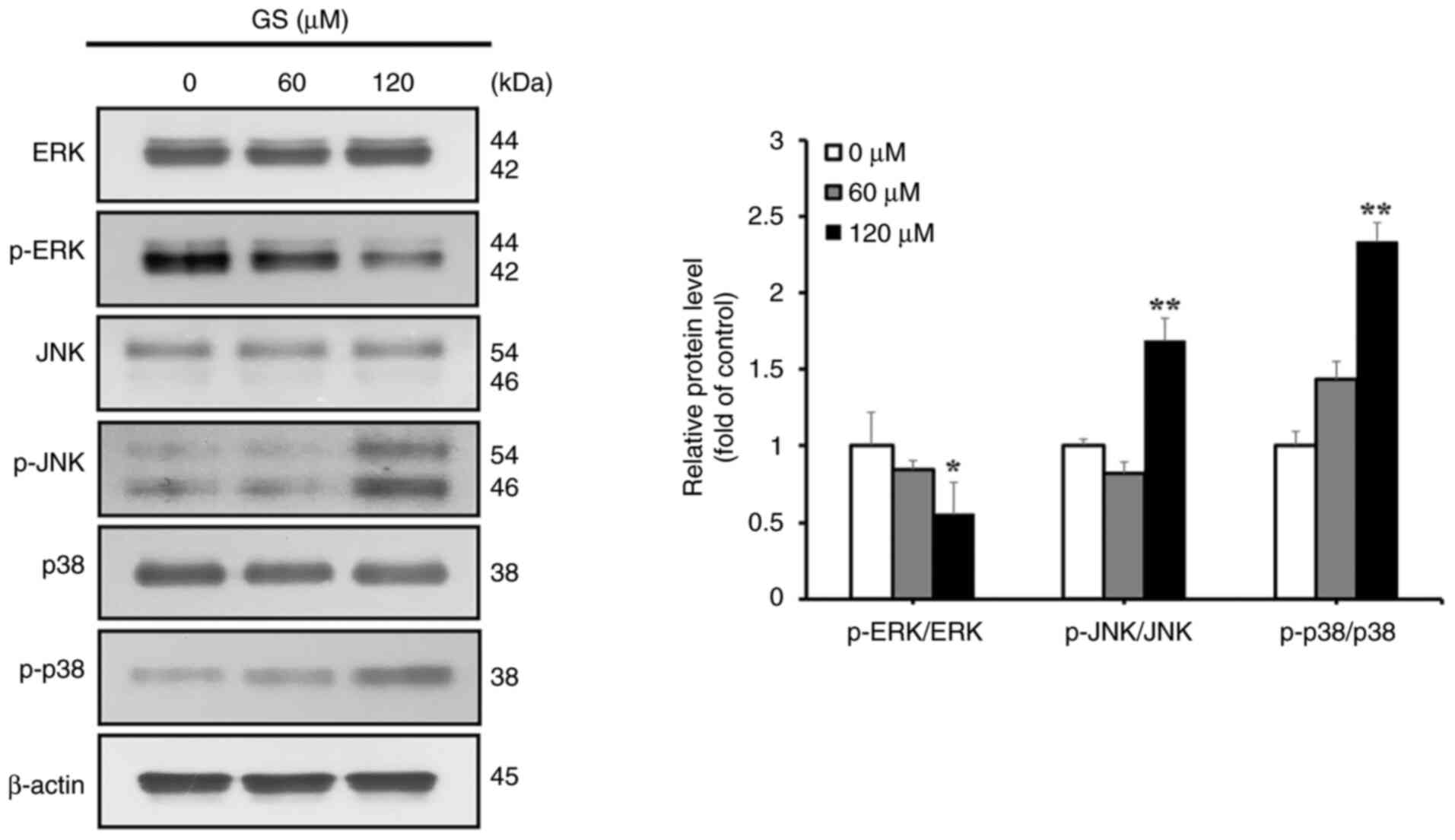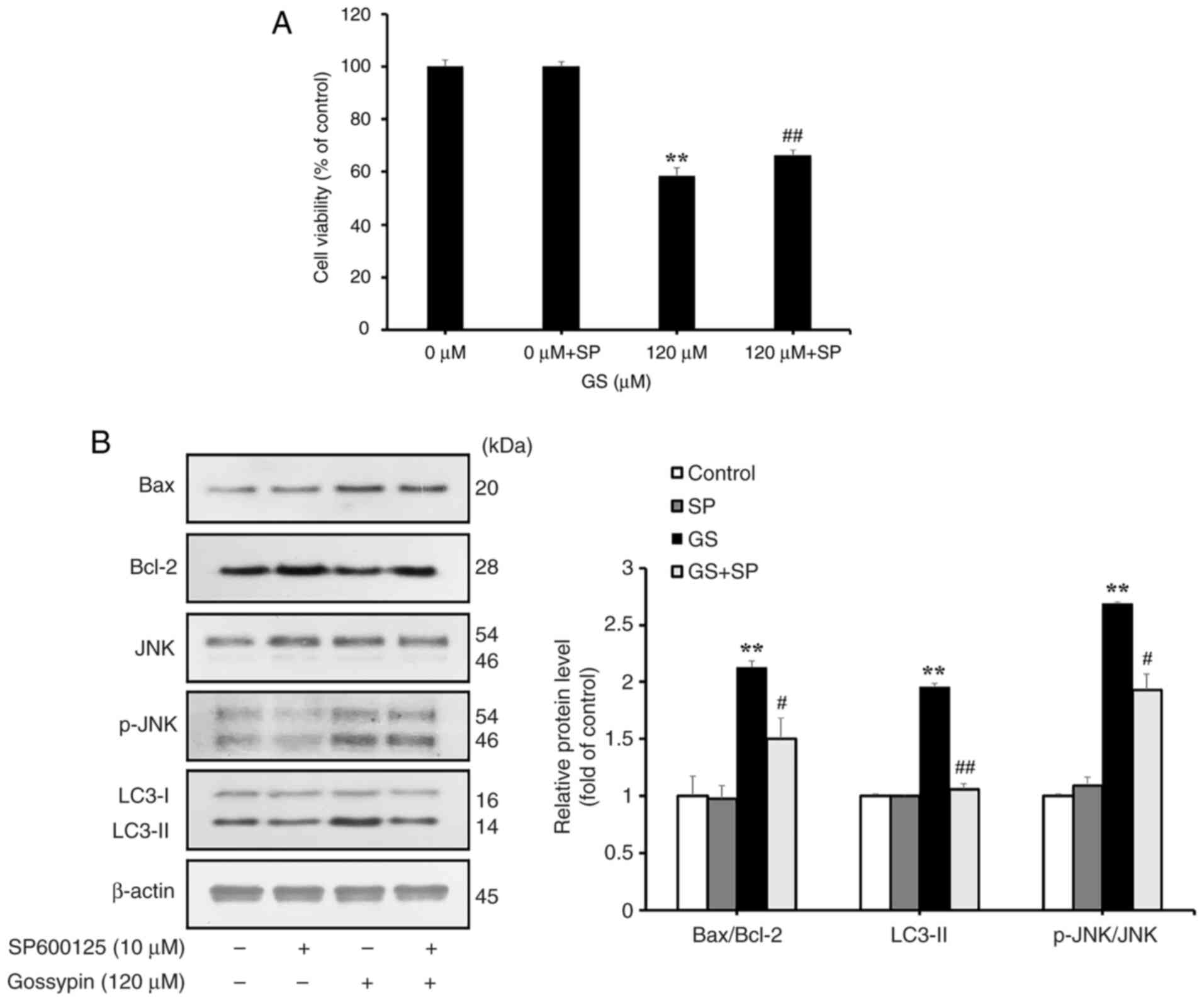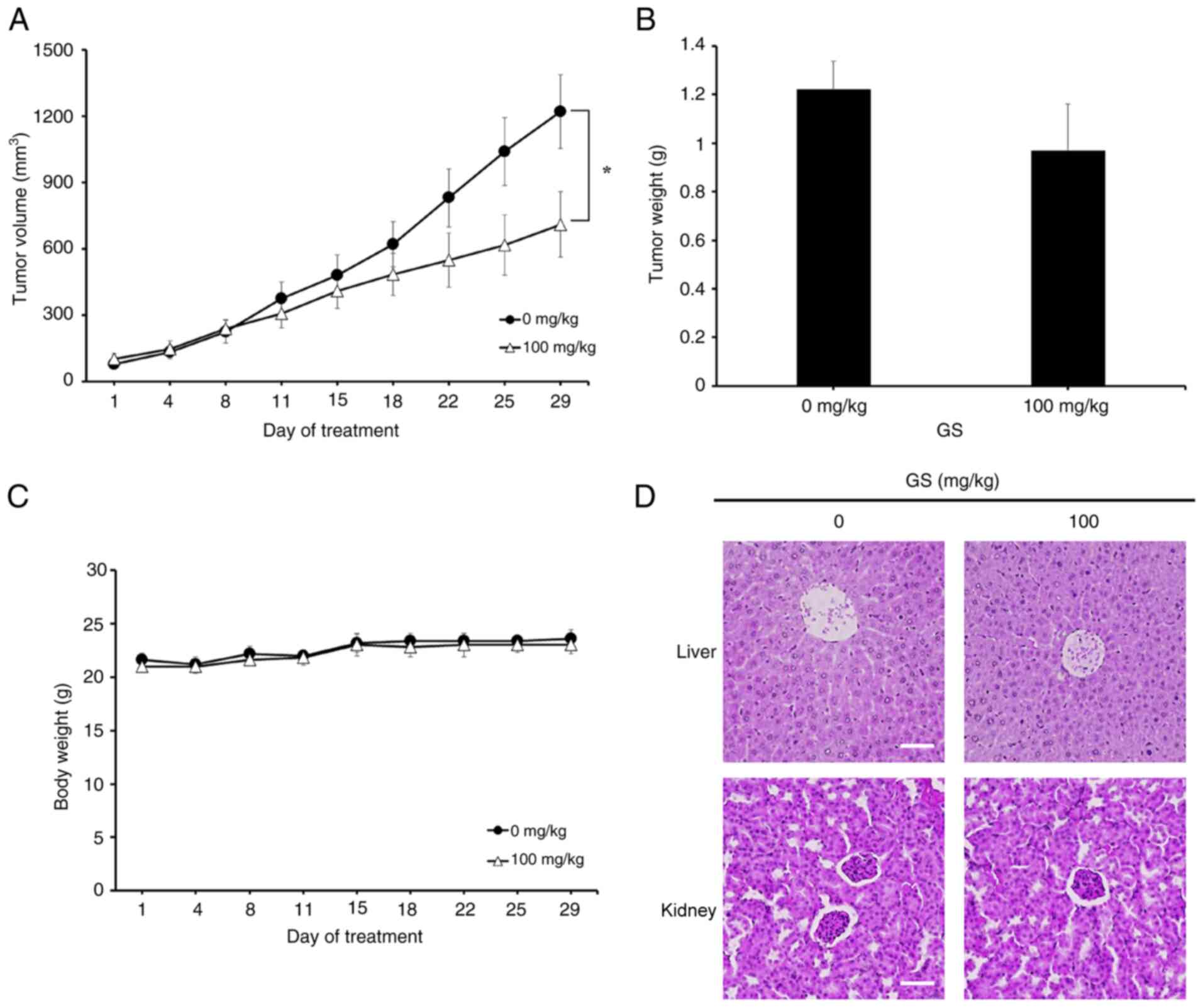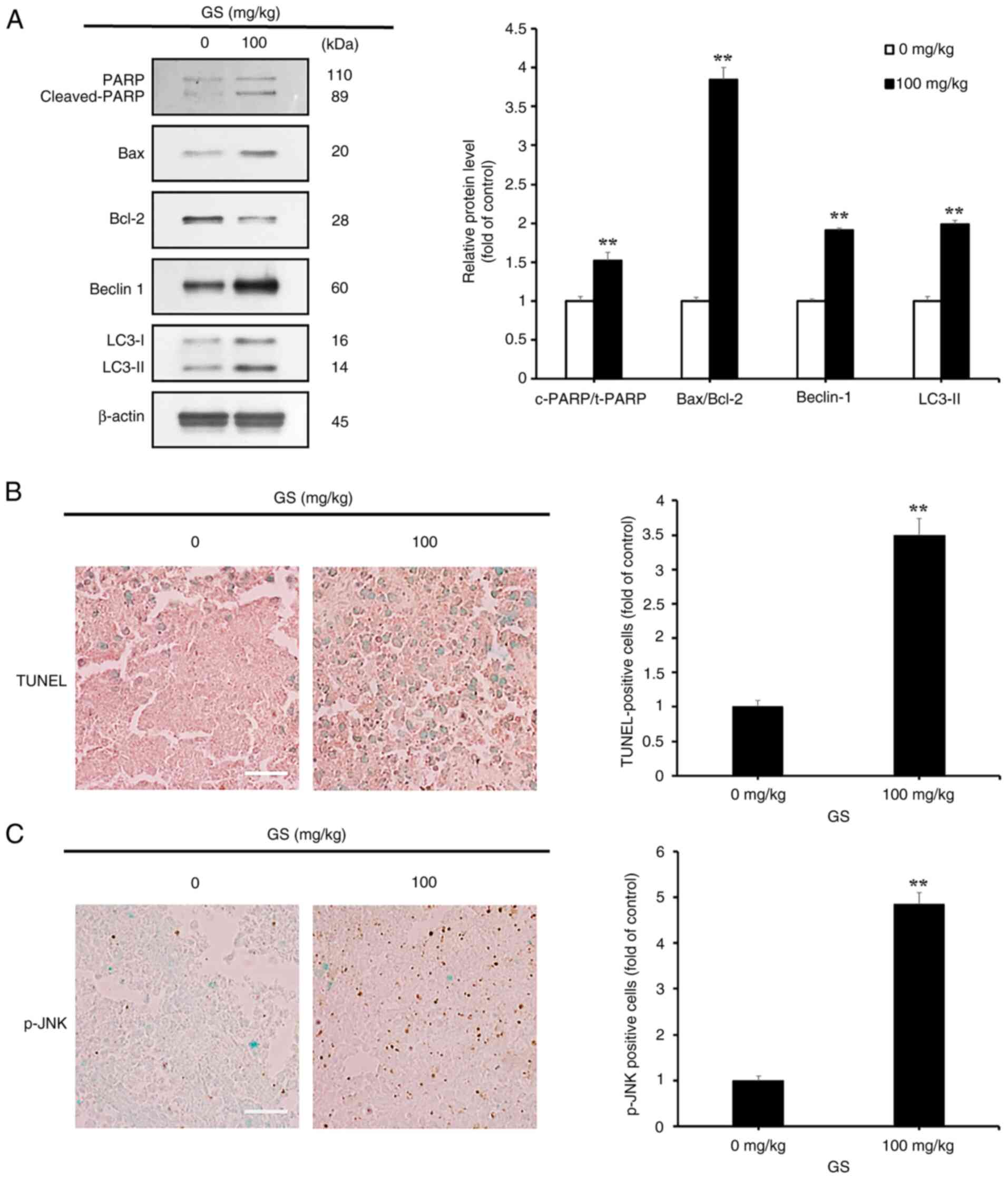|
1
|
Zaorsky NG, Churilla TM, Egleston BL,
Fisher SG, Ridge JA, Horwitz EM and Meyer JE: Causes of death among
cancer patients. Ann Oncol. 28:400–407. 2017. View Article : Google Scholar
|
|
2
|
WHO: Colorectal cancer. 2023, https://www.who.int/newsroom/fact-sheets/detail/colorectal-cancer.
|
|
3
|
Ahmed M: Colon cancer: A clinician's
Perspective in 2019. Gastroenterology Res. 13:1–10. 2020.
View Article : Google Scholar :
|
|
4
|
Siegel RL, Miller KD and Jemal A: Cancer
statistics, 2018. CA Cancer J Clin. 68:7–30. 2018. View Article : Google Scholar : PubMed/NCBI
|
|
5
|
Vogel JD, Felder SI, Bhama AR, Hawkins AT,
Langenfeld SJ, Shaffer VO, Thorsen AJ, Weiser MR, Chang GJ,
Lightner AL, et al: The American society of colon and rectal
surgeons clinical practice guidelines for the management of colon
cancer. Dis Colon Rectum. 65:148–177. 2022. View Article : Google Scholar
|
|
6
|
Tohme S, Simmons RL and Tsung A: Surgery
for cancer: A trigger for metastases. Cancer Res. 77:1548–1552.
2017. View Article : Google Scholar : PubMed/NCBI
|
|
7
|
Sara JD, Kaur J, Khodadadi R, Rehman M,
Lobo R, Chakrabarti S, Herrmann J, Lerman A and Grothey A:
5-fluorouracil and cardiotoxicity: A review. Ther Adv Med Oncol.
10:17588359187801402018. View Article : Google Scholar
|
|
8
|
Maillard M, Eche-Gass A, Ung M, Brice A,
Marsili S, Montastruc M, Puisset F and Thomas F: Severe toxicity of
capecitabine in a patient with DPD deficiency after a safe FEC-100
experience: Why we should test DPD deficiency in all patients
before high-dose fluoropyrimidines. Cancer Chemother Pharmacol.
87:579–583. 2021. View Article : Google Scholar
|
|
9
|
Huang M, Lu JJ and Ding J: Natural
products in cancer therapy: Past, present and future. Nat Prod
Bioprospect. 11:5–13. 2021. View Article : Google Scholar
|
|
10
|
Patel K, Kumar V, Verma A and Patel DK:
Gossypin: A phytochemical of multispectrum potential. J Coast Life
Med. 5:365–370. 2017. View Article : Google Scholar
|
|
11
|
Song B, Shen X, Tong C, Zhang S, Chen Q,
Li Y and Li S: Gossypin: A flavonoid with diverse pharmacological
effects. Chem Biol Drug Des. 101:131–137. 2023. View Article : Google Scholar
|
|
12
|
Huang H, Wang J, Hussain SA,
Gangireddygari VSR and Fan Y: Gossypin exert lipopolysaccharide
induced lung inflammation via alteration of Nrf2/HO-1 and NF-κB
signaling pathway. Environ Toxicol. 38:1786–1799. 2023. View Article : Google Scholar
|
|
13
|
Lee SU and Kim YH: Anticancer effects and
molecular mechanisms of gossypin on phosphatidylinositol
3-kinase/protein kinase B inhibition in human nonsmall cell lung
cancer cell line, A549. Nat Prod Commun.
18:1934578X2311944202023.
|
|
14
|
Çiçek M, Çınar İ and Aksak S: Gossypin
suppresses cell growth by cytotoxic effect and induces apoptosis in
MCF-7 cells. Med Rec. 4:21–26. 2022.
|
|
15
|
Wang L, Wang X, Chen H, Zu X, Ma F, Liu K,
Bode AM, Dong Z and Kim DJ: Gossypin inhibits gastric cancer growth
by direct targeting of AURKA and RSK2. Phytother Res. 33:640–650.
2019. View
Article : Google Scholar
|
|
16
|
Cinar I, Yayla M, Tavaci T, Toktay E, Ugan
RA, Bayram P and Halici H: In vivo and in vitro cardioprotective
effect of gossypin against isoproterenol-induced myocardial
infarction injury. Cardiovasc Toxicol. 22:52–62. 2022. View Article : Google Scholar
|
|
17
|
Cheng G, Zhang J, Jia S, Feng P, Chang F,
Yan L, Gupta P and Wu H: Cardioprotective effect of gossypin
against myocardial ischemic/reperfusion in rats via alteration of
oxidative stress, inflammation and gut microbiot. J Inflamm Res.
15:1637–1651. 2022. View Article : Google Scholar
|
|
18
|
Nagata S: Apoptosis and clearance of
apoptotic cells. Annu Rev Immunol. 36:489–517. 2018. View Article : Google Scholar
|
|
19
|
Li LY, Guan YD, Chen XS, Yang JM and Cheng
Y: DNA repair pathways in cancer therapy and resistance. Front
Pharmacol. 11:6292662021. View Article : Google Scholar
|
|
20
|
Yang Y and Klionsky DJ: Autophagy and
disease: Unanswered questions. Cell Death Differ. 27:858–871. 2020.
View Article : Google Scholar
|
|
21
|
Yu L, Chen Y and Tooze SA: Autophagy
pathway: Cellular and molecular mechanisms. Autophagy. 14:207–215.
2018. View Article : Google Scholar :
|
|
22
|
Yamamoto H, Zhang S and Mizushima N:
Autophagy genes in biology and disease. Nat Rev Genet. 24:382–400.
2023. View Article : Google Scholar : PubMed/NCBI
|
|
23
|
Marinković M, Šprung M, Buljubašić M and
Novak I: Autophagy modulation in cancer: Current knowledge on
action and therapy. Oxid Med Cell Longev. 2018:80238212018.
View Article : Google Scholar
|
|
24
|
Kriel J and Loos B: The good, the bad and
the autophagosome: Exploring unanswered questions of
autophagy-dependent cell death. Cell Death Differ. 26:640–652.
2019. View Article : Google Scholar :
|
|
25
|
Shi A, Liu L, Li S and Qi B: Natural
products targeting the MAPK-signaling pathway in cancer: Overview.
J Cancer Res Clin Oncol. 150:62024. View Article : Google Scholar : PubMed/NCBI
|
|
26
|
Guo YJ, Pan WW, Liu SB, Shen ZF, Xu Y and
Hu LL: ERK/MAPK signalling pathway and tumorigenesis. Exp Ther Med.
19:1997–2007. 2020.
|
|
27
|
Kudaravalli S, den Hollander P and Mani
SA: Role of p38 MAP kinase in cancer stem cells and metastasis.
Oncogene. 41:3177–3185. 2022. View Article : Google Scholar
|
|
28
|
Huang CF, Liu SH, Ho TJ, Lee KI, Fang KM,
Lo WC, Liu JM, Wu CC and Su CC: Quercetin induces tongue squamous
cell carcinoma cell apoptosis via the JNK activation-regulated
ERK/GSK-3α/β-mediated mitochondria-dependent apoptotic signaling
pathway. Oncol Lett. 23:782022. View Article : Google Scholar
|
|
29
|
Kim NY, Mohan CD, Sethi G and Ahn KS:
Cannabidiol activates MAPK pathway to induce apoptosis, paraptosis,
and autophagy in colorectal cancer cells. J Cell Biochem.
125:e305372024. View Article : Google Scholar : PubMed/NCBI
|
|
30
|
Zhai F, Wang Y and Yan M: Polyphenols from
morchella sextelata induce apoptosis of colorectal cancer cells
through ROS-mediated endogenous mitochondrial apoptosis pathway in
vitro. J Food Biochem. 2025:77777902025. View Article : Google Scholar
|
|
31
|
Bhaskaran S, Dileep KV, Deepa SS,
Sadasivan C, Klausner M, Krishnegowda NK, Tekmal RR, VandeBerg JL
and Nair HB: Gossypin as a novel selective dual inhibitor of V-RAF
murine sarcoma viral oncogene homolog B1 and cyclin-dependent
kinase 4 for melanoma. Mol Cancer Ther. 12:361–372. 2013.
View Article : Google Scholar : PubMed/NCBI
|
|
32
|
Shi L, Chen J, Wang YY, Sun G, Liu JN,
Zhang JX, Yan W, Qian CF, Liu N, Fu Z, et al: Gossypin induces G2/M
arrest in human malignant glioma U251 cells by the activation of
Chk1/Cdc25C pathway. Cell Mol Neurobiol. 32:289–296. 2012.
View Article : Google Scholar
|
|
33
|
Cinar I: Apoptosis-inducing activity and
antiproliferative effect of gossypin on PC-3 prostate cancer cells.
Anticancer Agents Med Chem. 21:445–450. 2021. View Article : Google Scholar
|
|
34
|
Hauser P, Wang S and Didenko VV: Apoptotic
bodies: Selective detection in extracellular vesicles. Methods Mol
Biol. 1554:193–200. 2017. View Article : Google Scholar : PubMed/NCBI
|
|
35
|
Miller E: Apoptosis measurement by annexin
v staining. Methods Mol Med. 88:191–202. 2004.
|
|
36
|
Riccardi C and Nicoletti I: Analysis of
apoptosis by propidium iodide staining and flow cytometry. Nat
Protoc. 1:1458–1461. 2006. View Article : Google Scholar
|
|
37
|
Boulares AH, Yakovlev AG, Ivanova V,
Stoica BA, Wang G, Iyer S and Smulson M: Role of poly(ADP-ribose)
polymerase (PARP) cleavage in apoptosis. Caspase 3-resistant PARP
mutant increases rates of apoptosis in transfected cells. J Biol
Chem. 274:22932–22940. 1999. View Article : Google Scholar : PubMed/NCBI
|
|
38
|
Chen A: PARP inhibitors: Its role in
treatment of cancer. Chin J Cancer. 30:463–471. 2011. View Article : Google Scholar : PubMed/NCBI
|
|
39
|
Santana-Codina N, Mancias JD and Kimmelman
AC: The role of autophagy in cancer. Annu Rev Cancer Biol. 1:19–39.
2017. View Article : Google Scholar
|
|
40
|
Badadani M: Autophagy mechanism,
regulation, functions, and disorders. Int Sch Res Notices.
2012:9270642012.
|
|
41
|
Pan H, Wang Y, Na K, Wang Y, Wang L, Li Z,
Guo C, Guo D and Wang X: Autophagic flux disruption contributes to
Ganoderma lucidum polysaccharide-induced apoptosis in human
colorectal cancer cells via MAPK/ERK activation. Cell Death Dis.
10:4562019. View Article : Google Scholar
|
|
42
|
Lu N, Li Y, Qin H, Zhang YL and Sun CH:
Gossypin up-regulates LDL receptor through activation of ERK
pathway: A signaling mechanism for the hypocholesterolemic effect.
J Agric Food Chem. 56:11526–11532. 2008. View Article : Google Scholar
|
|
43
|
Kwak AW, Kim WK, Lee SO, Yoon G, Cho SS,
Kim KT, Lee MH, Choi YH, Lee JY, Park JW and Shim JH: Licochalcone
B induces ROS-dependent apoptosis in oxaliplatin-resistant
colorectal cancer cells via p38/JNK MAPK signaling. Antioxidants
(Basel). 12:6562023. View Article : Google Scholar : PubMed/NCBI
|
|
44
|
Zhang X, Jiang J, Chen Z and Cao M:
Silibinin inhibited autophagy and mitochondrial apoptosis in
pancreatic carcinoma by activating JNK/SAPK signaling. Pathol Res
Pract. 215:1525302019. View Article : Google Scholar
|















